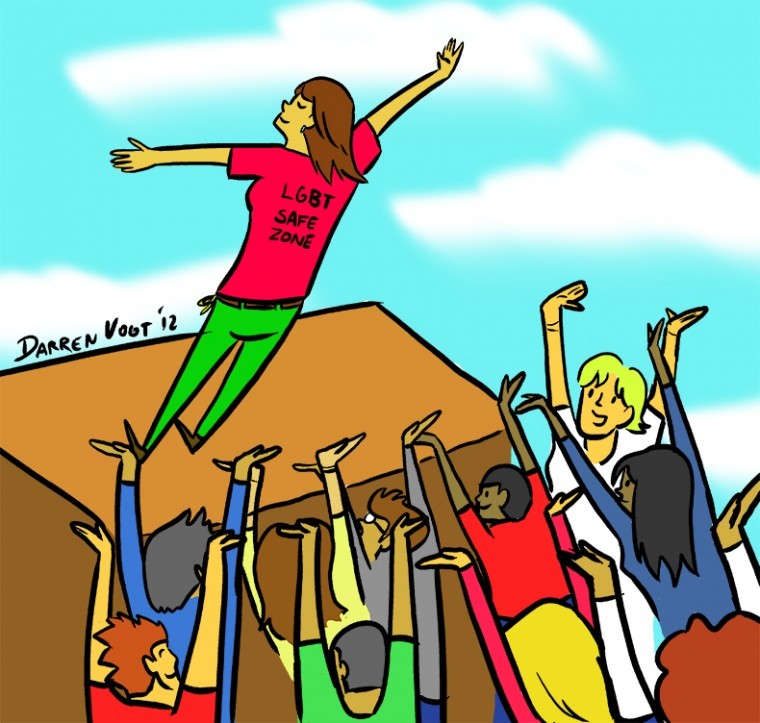EDITORIAL: Revived LGBT SafeZone is a good move
October 30, 2012
THE ISSUE: WKU Counseling and Testing Center is offering faculty and staff training to help lesbian, gay, bisexual and transgendered students on campus. The initiative is called the Safe Zone.
OUR STANCE: The Herald is happy to support the LGBT Safe Zone and its goals. Anything WKU can do to make students more comfortable in their environment is a step in the right direction.
The purpose of college is black and white: Students come to college to learn and earn a degree. This will ultimately give them the knowledge and skills that will help them be more marketable to employers when they are seeking a job.
Yet anyone who has attended or graduated from college will attest that the path to graduation, or even the end of the semester, is a gray one, full of surprises, trials, and life-changing occurrences.
For students who fall into the sexual minority category, the lesbian, gay, bisexual, and transgendered, or LGBT, this gray area can become especially murky for a number of different reasons. This unfortunately may impact their schoolwork as well as their wellbeing.
While every gay or transgendered student is different with various support systems and mindsets, the potential for their inner world to be disrupted can be the mostly the same.
The WKU Counseling and Testing Center recognizes this and, for the second time, has started the LGBT Safe Zone program.
The sessions last one hour and have a certified counselor lead discussions that help faculty and staff better understand students who are struggling with issues related to their sexual or gender identity.
When they have completed the training, participants receive a Safe Zone sticker to hang in their office that lets students know it’s a safe space.
The initiative is not only commendable but also one that should be praised as it could be a potentially life- or academic-saving program.
Each student has different circumstances that require different sensitivities, and LGBT students on a campus in south central Kentucky may not always feel welcomed.
There are a number of issues that arise, including, loneliness, depression or something more serious. This unfortunately may interfere with their academics. The better equipped professors are at dealing with issues that may develop, the more successful they can help the student become.
The Herald urges faculty and staff to get involved so that the program stays for the long term. Also, the more people who participate, the better the program works.
As mentioned earlier, this isn’t the first time the sessions have been offered. The first time it died out due to lack of participation. Many of the people who it looked to serve were too busy to attend the sessions.
While we understand faculty and staff are busy individuals, this is a good program to make time for.
As professors look to educate as many students as they can, they should understand personal problems happen. If they are equipped with the tools to help them, there is no telling how a student’s academic standing may improve.
This editorial represents the majority opinion of the Herald’s 14-member editorial board.






















